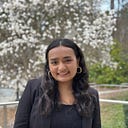An Honest Guide to being an International Student in America
While pondering the idea of being a student in America, we sit in our homelands perusing the social media accounts of our friends and ex-classmates frolicking their way through the country and realize we want the same thing. After months, perhaps years, of working with counselors and re-watching The Office to be updated on pop culture references, we finally get our acceptances and couldn’t be happier.
Upon arrival, the thought that we not only look different but also sound, act, and think different is what hits us first. Alongside fretting over which washing detergent to buy and how to operate a dishwasher, we must transform ourselves, adapt to our new environment, and hope that we don’t do anything untoward in the process.
We change our names for Starbucks baristas and professors who still get them wrong, but we’re too afraid to correct them, but also, does it even matter? We’d rather invest our time in listening to podcasts and reading articles about Costco and Target, familiarizing ourselves with these entirely unfamiliar concepts as professors bop around class asking students to raise their hands and share their experiences of times they went to Disneyland and listen to people talk about how their families took them as kids and we can’t help but think about how different our upbringing was.
We must pick our battles; we don’t know how to respond when someone says something offensive because, is it actually offensive? Does it warrant saying that the HimaLAYas is actually pronounced the HimAAlayas and that no, Indian Matchmaking isn’t an accurate representation of the insanely diverse Indian diaspora.
We find ourselves approached for things we’re visibly good at, as opposed to being ‘fun’. To balance financial statements or help prep for interviews. Hence, we must charter our way into being visibly fun, by showing other people our culture and introducing them to our spice levels. We exist but are still somehow invisible.
People confuse us with someone else who is from the same place, and we say nothing. And when something is going on outside, people are hurt and offended and we have a loosely-formed opinion, we choose to simply stay quiet and not say anything for the fear of saying something wrong; and this could be perceived as a flaw.
And so, we stick to our people - the people who look like us but would never turn us away, the people who remind us of familiarity and comfort. And sometimes, that is the flaw in itself.
Coming as a student to America, we were promised diversity and inclusion, our school spoke of affinity groups and international clubs, but we quickly realize that we must also put in the work to feel seen and heard. We didn’t fully grasp the idea of bringing that said diversity, whilst sitting at home in our reasonably homogenous communities. We must spend extra time reading Buzzfeed and watching Stephen Colbert, while also being the token diversity candidate in every room and feeling responsible for saying, ‘Well, where I come from…’
Do we continue to stay invisible, gather our degrees and dollar bills and return to our homelands? No one is hurt, no one is offended, maybe no one remembers us, but no one cares. Or do we fight for our place to belong, do we make grand gestures and take it upon ourselves to not only educate ourselves about America, but educate others about where we come from? Do we pledge allyship to all the different affinity groups we come across and want to learn more about, while also discovering and unearthing our own American friends who pledge their allyship to us?
It is a choice that everyone who has once felt invisible must make, for themselves and the people who come after them.
How do we draw a line between our favorite type of coffee that reminds us of our grandma’s kitchen but also learning how much creamer we take in our American machine coffee?
We pledge allyship to each other, who look like us within our homogenous units, yet we also pledge allyship to ourselves to show up, to perhaps change our accents but stay true to ourselves at our very core, to ask questions that we’re afraid of asking, and to facilitate change for everyone in our community.
